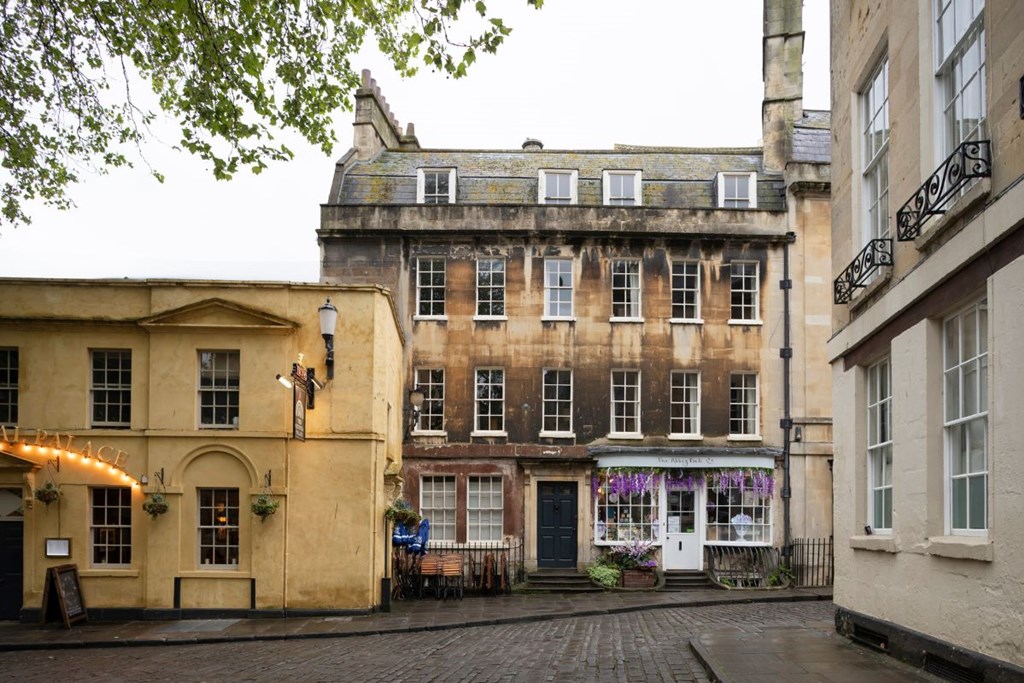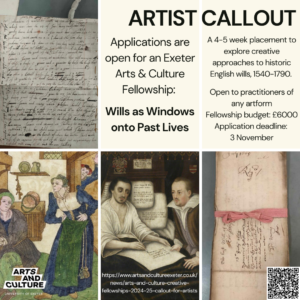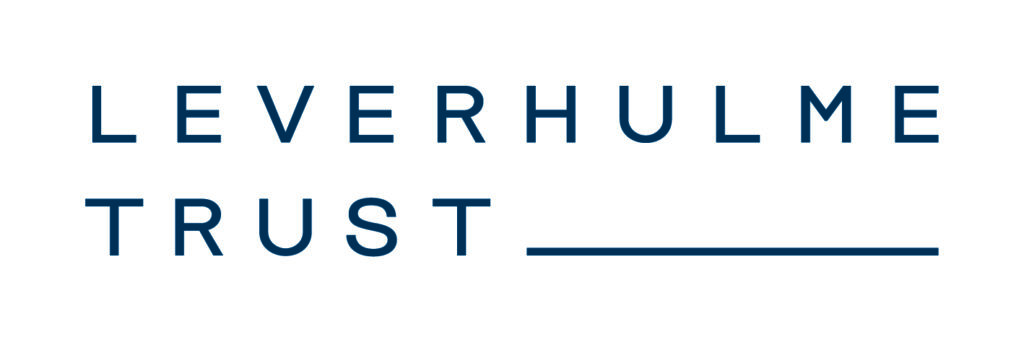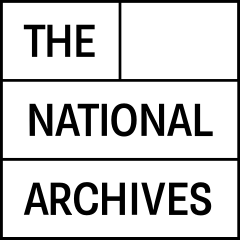![]()
We are delighted to share the news that the Wills Project has been awarded a free study break under The Landmark Trust’s ‘Landmark Futures’ scheme. All seven of us are off to Bath in March 2026, to stay for a week at the handsome Georgian building, Elton House.
Landmark Futures is an annual scheme run by the Landmark Trust that provides ten eductional institutions a year with a free group stay for academic purposes: study, discussion, teaching, field study or writing. You can see the full list of beneficiaries here.
Since four of our team are based in London, two in Exeter, and one in Plymouth, this will be a rare opportunity for us to meet and work alongside each other in person for a more sustained period. As if that weren’t enough to look forward to, we will also benefit from staying in an eighteenth century house, surrounded by the sort of material culture that we are researching, with the option of visiting various historic sites in the city to further immerse ourselves in the past. We will use our time in Bath to discuss and finalise publications, including various journal articles and our edited collection.
Musician Chris Hoban and historian Laura Sangha invite you to a unique performance of history and original music inspired by Tudor, Stuart and Georgian wills, part of FUTURES: A Festival of Discovery 2025.
Date and time: Saturday 11 October. 1:30 – 3pm
Location: Exeter Phoenix
Click on the link to claim your FREE ticket: https://www.eventbrite.co.uk/e/1738865536629
Wills are remarkable documents that often reveal hidden histories – for many people their will is the only record they have left behind. But while they are deeply evocative, wills can also be frustratingly mysterious, a mere glimpse into a person’s life. Chris and Laura have therefore come together to ‘fill in the gaps’ of these documents adopting a creative approach that captures the relationships, light, love and even humour within them. Come along to their performance to hear the fruits of their collaboration.
MORE ABOUT CHRIS AND LAURA
Chris Hoban is a Devon based composer, arranger, lyricist and performer. A singer who plays piano, piano accordion, ‘cello, mandocello and guitar, he has performed and worked alongside many artists in the UK and abroad. He is also a highly regarded choral composer and arranger for amateur, community and professional choirs.
Laura Sangha is Associate Professor of History at the University of Exeter. She is the Co-Investigator on the wills project.
Chris and Laura’s collaboration has been made possible by a University of Exeter Arts and Culture Creative Fellowship, a short-term grant that brings creative practitioners into research settings to encourage new conversations across disciplines.
We are delighted to share details of our next event: a hybrid historic wills ‘Transcribathon’ – online and in person (Exeter, UK), Thursday 24 July, 1-4PM BST.
Join Zoom Meeting – all welcome!
https://Universityofexeter.zoom.us/j/91265563424?pwd=fTIiMyIkZ0CxgV72FeaJzgVHVQbVmn.1
Meeting ID: 912 6556 3424
Password: 942698
Why are we doing this?
Wills are one of the most important and evocative records of life in Tudor, Stuart, and Georgian England. They are the only type of personal document to survive in their hundreds of thousands before 1800, indeed for many people their will was the only record they left behind. That’s why historians and data scientists have come together to transcribe and analyse patterns in bequests within these remarkable documents, but to do this, they need your help!
How will this transcribathon work?
In person and online participants will use the crowdsourcing website Zooniverse to transcribe as many wills as possible during the afternoon. Attendees choose either to transcribe from scratch, or to check automatically-generated transcription. They will be shown one line of text from a will at a time to transcribe or correct.
Members of the research team will be on hand to answer questions, and participants will be able to chat to each other and to share interesting findings (e.g. objects, places, distinctive bequests) on the Zooniverse ‘Talk Boards’ in real time.
While people transcribe members of the research team will also give a series of short talks, sharing details of our own research into wills, highlighting interesting findings, and unpicking the project’s use of digital technology (AI software known as Handwritten Text Recognition).
Why volunteer?
By taking part in the transcribathon you will contribute to academic research, and you will also make these invaluable documents more accessible for all – at the end of the project all 25,000 will transcriptions will be made freely available online.
Practicalities
The Transcribathon will run from 13.00-16.00 BST, but you do not need to commit to the whole session – you can attend part of the afternoon, or you are free to drop in and out. In-person tickets are limited; tea, coffee, and biscuits will be provided.
13.00: Welcome – Laura Sangha
13.15: Using Zooniverse – Harry Smith
13.30: Introduction to the project – Jane Whittle
13.45: Genealogy, family heirlooms, and interesting objects – Emily Vine
14.15: How volunteers teach the computer – Mark Bell
14.45: A first look at the data, 1785-6 – Harry Smith
15.15: Two short talks:
Single people and Gender in Wills – Kit Barton
Tales of the Unexpected – Laura Sangha
15.45: What will we do with all the data? – Jane Whittle
Transcribathon Grand Total Announced!
We are thrilled that the Zooniverse team chose to feature the Wills project on their YouTube channel as part of their series ‘Around the Zoo’.
Our three and a half minute video features members of the team introducing the project and encouraging people to get involved: watch it here.
An Evening of Stories and Songs: Wills as Windows onto Past Lives
Devon and Exeter Institution: Blue Room
Wednesday 18 June, Doors 6.30pm, start 7pm.
Composer, lyricist and performer Chris Hoban and wills project Co-Investigator Laura Sangha invite you to join them for a unique evening of history and original music inspired by Tudor, Stuart and Georgian wills.
Wills are remarkable documents that often reveal hidden histories – for many people their will is the only record they have left behind. But while they are deeply evocative, wills can also be frustratingly mysterious, a mere glimpse into a person’s life.
Chris and Laura have therefore come together to ‘fill in the gaps’ of these documents adopting a creative approach that captures the relationships, light, love and even humour within them – this evening showcases the first fruits of their collaboration in the stunning surrounds of the Devon and Exeter Institution’s newly refurbished Blue Room.
Entrance is free, but you must register for a ticket on Eventbrite.
Chris Hoban is a Devon based composer, arranger, lyricist and performer. A singer who plays piano, piano accordion, ‘cello, mandocello and guitar, he has performed and worked alongside many artists in the UK and abroad. He is also a highly regarded choral composer and arranger for amateur, community and professional choirs.
Laura Sangha is Associate Professor of History at the University of Exeter. She is part of the Leverhulme Trust research project ‘The Material Culture of Wills, England 1540-1790’ which uses AI and crowdsourcing to transcribe and analyse 25,000 wills.
Chris and Laura’s collaboration has been made possible by a University of Exeter Arts and Culture Creative Fellowship, a short-term grant that brings creative practitioners into research settings to encourage new conversations across disciplines.
This collaboration with Double Elephant Press gives you the unique opportunity to hear new music directly inspired by wills from the Prerogative Court of Canterbury and to design and print your own illustration to accompany one of the songs.
The workshop grows out of the Exeter Arts and Culture Creative Fellowship that brings musician, composer and performer Chris Hoban together with the project Co-Investigator Dr Laura Sangha to discover more playful and experimental ways to approach historic wills. Before the event we will send you some early modern wills along with lyrics that Chris has written so that you can prepare an image to accompany them. On the day itself you will get to see and hear a unique performance of the songs by Chris, and to create a linocut of your design to be printed and taken away.
The workshop is at the University of Exeter on Thursday 15 May. Attendance is free, but places are limited – for full details and to reserve a place please visit Eventbrite.
Speakers: Dr Laura Sangha, Dr Harry Smith, and Dr Emily Vine
Date: Wednesday 19 March 2025
Time: 14.00-15.00 GMT
Watch a recording of the webinar on our YouTube channel.
It’s been 4 months since the launch of the ‘Material Culture of Wills’ Zooniverse site, and we’d like to say a huge THANK YOU to every single person who has got involved. We’ve been overwhelmed by the level of engagement – at the time of writing 2,582 volunteers have contributed, transcribing over 350,000 lines of text from early modern wills, and putting in more than 7,800 hours of work.
Join members of the team for an update on the first few months of the Zooniverse site – we’ll share some of the most exciting things that volunteers have discovered so far, provide some updated statistics about project progress, answer questions submitted in advance, and look ahead to what we’re hoping to achieve over the next few months.
At the end of February 2025 we circulated our third newsletter reporting on what we have been up to over the last few months. Click on the image below to view the pdf. If you would like to receive future copies of our newsletter directly you can sign up to our mailing list.
Project Co-Investigator Dr Laura Sangha was chosen by Exeter Arts and Culture to host a ‘Creative Fellow’ this academic year. We are now delighted to announce the appointment of Chris Hoban, and to welcome him to the team.
Chris is a Devon based composer, arranger, performer and lyricist who will be collaborating with us to explore and compare historical and creative approaches to historic wills. As the fellowship progresses Laura will be blogging on the project website about the process of collaboration, and Chris is writing a reflective diary for the Arts and Culture website. We also plan to hold some events to share insights into the collaboration by various means, so do look out for further news.
You can read more about the fellowship, and see updates from ‘Wills as a Window onto Past Lives’ on the Arts and Culture dedicated page here: https://www.artsandcultureexeter.co.uk/creative-fellowship/will-as-windows-to-past-lives.
Speakers: Professor Jane Whittle, Dr Laura Sangha, and Dr Emily Vine
Date: Tuesday 12 November
Time: 15:30-16.00
Venue: Online via Zoom – joining details below. The webinar will be recorded and uploaded to our YouTube channel afterwards.
Want to find out more about the ‘Material Culture of Wills’ project and our new Zooniverse site? Have you been meaning to give Zooniverse a go but are not sure where to start? Join us for a 30-minute introduction to the project, and a demonstration of our Zooniverse site. Find out all about why we’re looking at wills, how we’re using digital humanities and crowdsourcing approaches, how our Zooniverse site works, and how you can get involved.
Please note that this is a non-interactive webinar so the chat function will be disabled, as will attendees’ cameras and microphones. We will be uploading the recording of the webinar to our YouTube channel after the session.
Join Zoom Meeting
https://Universityofexeter.zoom.us/j/94815970845?pwd=4R9VB3OucKNIaMOLtrlqphxpbVFbOa.1
Meeting ID: 948 1597 0845
Password: 917081
We are delighted to report that Arts & Culture Exeter have selected project Co-Investigator Laura Sangha to host a Creative Fellow during this academic year. The creative fellow will undertake a 4-5 week placement to explore and unlock creative approaches to historic wills c.1540-1790 alongside Laura and the rest of the wills team.
The creative fellowship is open to to practitioners of any artform, including visual, digital, sound and performing arts, craft, design, film, literature and music. The artist is a peer, opening up new approaches and conversations with their hosts while developing and enriching their own creative practice. This scheme encourages mutually beneficial exchange, where both the host and the creative practitioner gain new insights and potential ways of working.
Download the full details and apply (pdf).

On 19 September 2024 we circulated our second newsletter reporting on what we have been up to over the last few months. Click on the image below to view the pdf. If you would like to receive future copies of our newsletter directly you can sign up to our mailing list.
We are delighted to report that in July 2024 Harry Smith and Emily Vine (the two postdoctoral fellows on the project) had an article accepted for publication by Transactions of the Royal Historical Society. The article is the first publication from the project, it will be published towards the end of this year, and it will be freely accessible to all readers.
Harry Smith and Emily Vine, ‘Material and Digital Archives: the case of wills’. [Update: the article has now been published: Harry Smith and Emily Vine, ‘Material and Digital Archives: The Case of Wills’, Transactions of the Royal Historical Society, December 2024 (published online September, 2024).]
The range of digital sources available to historians has expanded at an enormous rate over the last fifty years; this has enabled all kinds of innovative scholarship to flourish. However, this process has also shaped recent historical work in ways that have not been fully discussed or documented. This article considers how we might reconcile the digitisation of archival sources with their materiality, with a particular focus on the probate records of the Prerogative Court of Canterbury (PCC). The article first considers the variety of digital sources available to historians of the United Kingdom, highlighting the particular influence of genealogical companies in shaping what material is available, how it has been digitised and how those sources are accessed. Secondly, we examine the PCC wills’ digitisation, what was gained and what was lost in that process, notably important material aspects of the wills. This article does not seek to champion archival research in opposition to digitally based scholarship; instead, we remind historians of the many ways in which the creation of sources shape their potential use, and call on historians to push for improvements in the United Kingdom’s digital infrastructure to avoid these problems in future.
UPDATE: BOTH WORKSHOPS ARE NOW FULLY BOOKED
From exploring the history of a family, to tracing expanding global trade, to gaining a practical insight into peoples’ lives, wills are a remarkably rich historical resource. In this hands-on workshop participants will engage with English wills from 1540-1790 as we consider the wealth of information that these documents contain about the past.
The workshop is organised by a of team of researchers from the University of Exeter and The National Archives who work on ‘The Material Culture of Wills, England 1560-1790’ project. The team will provide an overview of the project and will present aspects of their own research on wills.
Participants will also have the opportunity to engage with some of the most interesting wills the team and our expert volunteers have encountered so far, to transcribe alongside like-minded researchers, and to share experiences of working with wills or conducting local or family history research drawing on wills.
Monday 17 June, The National Archives, Kew: https://www.eventbrite.com/e/896410406657
Friday 21 June, Digital Humanities Lab, University of Exeter: https://www.eventbrite.com/e/906238352307
The deadline for our funded PhD studentship focused on global commodities in wills has been extended to 1 May 2024. If you are interested in applying the project Principal Investigator, Professor Jane Whittle, gives lots more detail in this blog post about how the studentship would work. In the post Jane emphasises that the studentship is very flexible, and she highlights just some of the areas that the succesful candidate could focus on in their exploration of global commodities (maritime, trade, material culture, gender, status, occupations, rural/urban differences etc).
We are delighted to report that we have recently been awarded funding from the University of Exeter’s Public Engagement Springboard fund that will allow us to organise two in person workshops for project volunteers – one will take place in Exeter, the other at The National Archives in Kew.
These workshops will take the form of ‘Transcribathons’, where volunteers will come together to transcribe wills and to learn more about the project from the members of the Team. The events will be in late June 2024, they will be free to attend, and lunch will be provided.
More details to follow soon!
‘The Material Culture of Wills, England 1540-1790.’
Exeter Centre for Early Modern Studies seminar
Speakers: Dr Laura Sangha and Dr Emily Vine
Date: Wednesday 28 February
Time: 15:30 – 17:00
Venue: University of Exeter, Forum Seminar Room 6 AND online via Zoom – joining details below. If you sign up to our project mailing list we will also circulate the link there.
In the pre-modern period, most will-makers described in detail some of the items they bequeathed to particular relatives and friends. For instance Elizabeth Brickenell, a widow of Exeter, left a friend her third best petticoat in 1569, while in 1603 William Radcliffe of London left his sister ‘a gold ring with a picture of death’s head, for all her unkindness’. Bequests in wills thus provide evidence not only of what people owned, but also, by choosing objects to bequeath and describing them in particular ways, of people’s attitudes towards those possessions.
In this talk project Co-Investigator Dr Laura Sangha and Early Modern Research Fellow Dr Emily Vine will introduce ‘The Material Culture of Wills’ – a project using cutting edge digital technology to transcribe 25,000 manuscript wills to examine these changing attitudes to material culture in England in the 250 years before the Industrial Revolution. The key research question is: how did people’s relationship with their possessions change in an era of rapidly increasing trade and commercialisation?with their possessions change in an era of rapidly increasing trade and commercialisation?
Topic: Exeter CEMS English Wills and Attitudes to Possessions c. 1540-1790
Time: Feb 28, 2024 15:30 London
Join Zoom Meeting
https://Universityofexeter.zoom.us/j/92392163667?pwd=TEI3SjV0eS91c2FuV0p4WFdVR3prZz09
Meeting ID: 923 9216 3667
Password: 046908
‘I geve and bequeth to thee my third best petycote’: English Wills and Attitudes to Possessions c. 1540-1790′.
An Online University of Reading Early Modern Research Centre Seminar.
Speaker: Dr Laura Sangha
Date: Monday 26 February
Time: 13:00 -14:00
Venue: Online via Teams only. If you join Reading EMRC mailing list you will receive a link to join on the morning of the talk, or you can email emrc@reading.ac.uk.
In the pre-modern period, most will-makers described in detail some of the items they bequeathed to particular relatives and friends. For instance Elizabeth Brickenell, a widow of Exeter, left a friend her third best petticoat in 1569, while in 1603 William Radcliffe of London left his sister ‘a gold ring with a picture of death’s head, for all her unkindness’. Bequests in wills thus provide evidence not only of what people owned, but also, by choosing objects to bequeath and describing them in particular ways, of people’s attitudes towards those possessions.
In this talk project Co-Investigator Dr Laura Sangha will introduce ‘The Material Culture of Wills’ – a project using cutting edge digital technology to transcribe 25,000 manuscript wills to examine these changing attitudes to material culture in England in the 250 years before the Industrial Revolution. The key research question is: how did people’s relationship with their possessions change in an era of rapidly increasing trade and commercialisation?with their possessions change in an era of rapidly increasing trade and commercialisation?
Sign up to our mailing list for notifications about future events.
‘I geve and bequeth to thee my third best petycote’: English Wills and Attitudes to Possessions c. 1540-1790′.
Speaker: Dr Laura Sangha
Date: Tuesday 13 February 2024
Time: 19:00 – 20:30
Venue: Lecture Theatre, Roland Levinsky Building
Ticket information: £6, £4 Concession, FREE to University of Plymouth students via SPiA and Historical Association members.
In the pre-modern period, most will-makers described in detail some of the items they bequeathed to particular relatives and friends. For instance Elizabeth Brickenell, a widow of Exeter, left a friend her third best petticoat in 1569, while in 1603 William Radcliffe of London left his sister ‘a gold ring with a picture of death’s head, for all her unkindness’. Bequests in wills thus provide evidence not only of what people owned, but also, by choosing objects to bequeath and describing them in particular ways, of people’s attitudes towards those possessions.
In this talk project Co-Investigator Dr Laura Sangha will introduce ‘The Material Culture of Wills’ – a project using cutting edge digital technology to transcribe 25,000 manuscript wills to examine these changing attitudes to material culture in England in the 250 years before the Industrial Revolution. The key research question is: how did people’s relationship with their possessions change in an era of rapidly increasing trade and commercialisation?with their possessions change in an era of rapidly increasing trade and commercialisation?
Sign up to our mailing list for notifications about future events.
We are currently advertising two Leverhulme Trust funded PhD studentships, to start in September 2024. The studentships include full tuition fees and maintenance allowance, and are available to UK candidates.
The successful applicants will join a project team that are using cutting-edge digital humanities techniques to automate the transcription of 25,000 wills from the National Archives. They will be provided with a pre-populated database of these wills to analyse for their PhD research. The PhDs will be jointly supervised by Professor Jane Whittle and Dr Laura Sangha (Archaeology and History, University of Exeter). Please follow the links below for full details.
Global Commodities in Early Modern Wills [DEADLINE NOW PASSED]
Gender and the Material Culture of Wills: England 1540-1790 [DEADLINE NOW PASSED]

